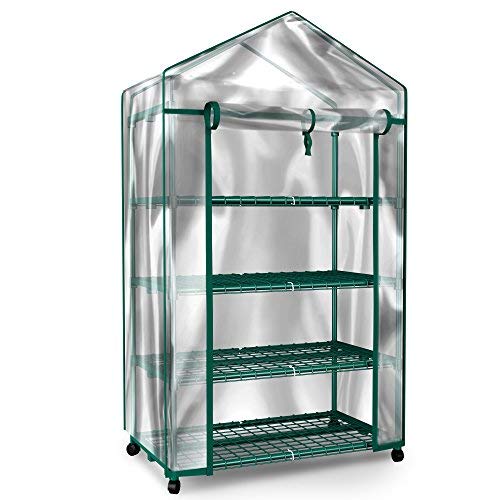Hold on to your hat! Spring and it’s warmer cousin, summer, are just around the corner. Yes, even if you’re looking out the window at piles of crystalline, white snow — believe! One day soon, the days will lengthen and your summer garden will become just as real as those freezing temperatures!
Seed companies from companies like Seed Savers, Territorial Seed Company, and Baker Creek Heirloom Seeds have their catalogs at the ready. Be sure to request them now before supplies run low. Here’s a comprehensive list of seed companies to peruse.
Even before the catalogs arrive, though, there are a number of actions you can take right now to get that summer garden ready before the spring thaw.
Current Prices on popular forms of Silver Bullion
1. Improve your soil, if it needs it.
 Soil Activator,Gl
Buy New $28.05
(as of 07:15 UTC - Details)
Soil Activator,Gl
Buy New $28.05
(as of 07:15 UTC - Details)
Marjory Wildcraft of The Grow Network, says that conditioning your soil is one of the first thing any gardener should do. Keep in mind that soil composition can change over time and should be re-evaluated every so often.
Our garden was growing tomatoes non-stop, even throughout the winter, when suddenly everything pretty much died. We learned, later, that our soil had accumulated too much nitrogen and had to back up several steps to make some adjustments. You might need to:
- Have your soil tested by your local extension office.
- Mix compost in with the soil you now have.
- Add amendments, per instructions from extension office or local growers.
This article outlines, even more, mistakes a backyard gardener can make on her way to developing a healthy, productive garden.
2. Push your composting into high gear!
Make sure everyone in the family knows what can and cannot be added to compost and place “compost catchers” near the kitchen sink and anywhere else food is prepared. As explained in this article, you really can compost
 Home-Complete Mini Gre...
Check Amazon for Pricing.
through the winter.
Home-Complete Mini Gre...
Check Amazon for Pricing.
through the winter.
Get the kids busy shredding newspaper and old mail (remove plastic windows in envelopes before shredding). Visit a nearby coffee house and ask for their old coffee grinds. Ask neighbors for grass clippings, piles of old leaves, and vegetable peelings. If it’s too cold outside to venture out to a compost pile, keep a rolling compost bin like this one on the patio, just outside the back door, or in an outbuilding. You can always move it when warmer temperatures arrive.
3. Research what grows best in your area and microclimate.
If you’re not sure what to plant and when visit a farmer’s market and talk to the pros or search on the internet for local gardening blogs.
Out of curiosity, I did a search for “Phoenix garden blog” and came up with 28,900,000 results. OK, most of those didn’t have the information I was looking for, but the way I figure it is that if someone cares enough to write about their gardening efforts, they probably have some pretty good information and tips to share!
 Chapin International G...
Buy New $17.94
(as of 08:35 UTC - Details)
Local nurseries (probably not the big box store nurseries) will likely have good advice about what grows best in your climate. Remember that many of us live in micro-climates, and our backyards may have more than one microclimate, which affects what we can grow and when it should be planted and harvested.
Chapin International G...
Buy New $17.94
(as of 08:35 UTC - Details)
Local nurseries (probably not the big box store nurseries) will likely have good advice about what grows best in your climate. Remember that many of us live in micro-climates, and our backyards may have more than one microclimate, which affects what we can grow and when it should be planted and harvested.
4. Check your watering system.
Replace any missing or damaged valves or hoses. There’s nothing quite like spending some money on seeds and/or seedlings, amassing a good amount of quality compost, and then coming out one day to discover that your plants are nearly dead from an unexpected heat wave.
This happened to us last June, and it was so disappointing. If your garden depends on a watering system, this is an area that can’t be neglected.




